afterLoad (455.64KB) (435μs)
afterInitialise (1.27MB) (48.86ms)
afterRoute (826.8KB) (19.35ms)
beforeRenderComponent com_tags (20.62KB) (258μs)
afterRenderComponent com_tags (2.91MB) (297ms)
afterDispatch (27.38KB) (2.57ms)
beforeRenderRawModule mod_articles_category (READ MORE...) (429.36KB) (23.19ms)
Before Access::preloadComponents (all components) (50.9KB) (411μs)
After Access::preloadComponents (all components) (103.05KB) (1.8ms)
Before Access::getAssetRules (id:8 name:com_content) (840B) (19μs)
After Access::getAssetRules (id:8 name:com_content) (7.05KB) (45μs)
afterRenderRawModule mod_articles_category (READ MORE...) (13.54KB) (234ms)
beforeRenderRawModule mod_custom (BOOST YOUR IMMUNE DEFENSE) (6.45KB) (34μs)
afterRenderRawModule mod_custom (BOOST YOUR IMMUNE DEFENSE) (3.8KB) (205μs)
beforeRenderRawModule mod_tags_popular (Search) (2.36KB) (16μs)
afterRenderRawModule mod_tags_popular (Search) (40.95KB) (244ms)
beforeRenderRawModule mod_custom (Get additionel and more detailed knowledge ) (816B) (30μs)
afterRenderRawModule mod_custom (Get additionel and more detailed knowledge ) (1.55KB) (49μs)
beforeRenderRawModule mod_custom (Overview of vitamins, minerals, and essential fatty acids) (768B) (11μs)
afterRenderRawModule mod_custom (Overview of vitamins, minerals, and essential fatty acids) (960B) (23μs)
beforeRenderRawModule mod_custom (Q10 goes by many names) (608B) (9μs)
afterRenderRawModule mod_custom (Q10 goes by many names) (928B) (19μs)
beforeRenderRawModule mod_custom (Check this before you buy a Q10 product) (752B) (9μs)
afterRenderRawModule mod_custom (Check this before you buy a Q10 product) (944B) (18μs)
beforeRenderRawModule mod_custom (Are you taking supplements) (736B) (10μs)
afterRenderRawModule mod_custom (Are you taking supplements) (1.03KB) (17μs)
beforeRenderRawModule mod_custom (Weight loss that works) (736B) (9μs)
afterRenderRawModule mod_custom (Weight loss that works) (1.03KB) (18μs)
beforeRenderRawModule mod_custom (Antiaging) (720B) (9μs)
afterRenderRawModule mod_custom (Antiaging) (912B) (17μs)
beforeRenderRawModule mod_menu (Are you getting enough vitamins and minerals?) (2.5KB) (12μs)
afterRenderRawModule mod_menu (Are you getting enough vitamins and minerals?) (22.39KB) (3.53ms)
beforeRenderRawModule mod_menu (The key to increased well-being) (736B) (29μs)
afterRenderRawModule mod_menu (The key to increased well-being) (17.83KB) (289μs)
beforeRenderRawModule mod_menu (Did you know.....) (720B) (16μs)
afterRenderRawModule mod_menu (Did you know.....) (25.52KB) (3.54ms)
beforeRenderRawModule mod_custom (Useful Links) (1.06KB) (26μs)
afterRenderRawModule mod_custom (Useful Links) (1.02KB) (40μs)
beforeRenderRawModule mod_custom (Chronic fatigue tied Alan to his bed but Q10 capsules saved him:) (244.28KB) (7.04ms)
afterRenderRawModule mod_custom (Chronic fatigue tied Alan to his bed but Q10 capsules saved him:) (1.06KB) (47μs)
beforeRenderModule mod_custom (Chronic fatigue tied Alan to his bed but Q10 capsules saved him:) (768B) (5μs)
afterRenderModule mod_custom (Chronic fatigue tied Alan to his bed but Q10 capsules saved him:) (1.3KB) (61μs)
beforeRenderRawModule mod_custom (Cholesterol-lowering without side effects:) (368B) (13μs)
afterRenderRawModule mod_custom (Cholesterol-lowering without side effects:) (1.06KB) (23μs)
beforeRenderModule mod_custom (Cholesterol-lowering without side effects:) (752B) (2μs)
afterRenderModule mod_custom (Cholesterol-lowering without side effects:) (1.28KB) (31μs)
beforeRenderModule mod_articles_category (READ MORE...) (40.82KB) (352μs)
afterRenderModule mod_articles_category (READ MORE...) (1.25KB) (40μs)
beforeRenderModule mod_custom (BOOST YOUR IMMUNE DEFENSE) (6.81KB) (14μs)
afterRenderModule mod_custom (BOOST YOUR IMMUNE DEFENSE) (1.28KB) (26μs)
beforeRenderModule mod_tags_popular (Search) (1.98KB) (12μs)
afterRenderModule mod_tags_popular (Search) (1.27KB) (28μs)
beforeRenderModule mod_custom (Get additionel and more detailed knowledge ) (1.17KB) (15μs)
afterRenderModule mod_custom (Get additionel and more detailed knowledge ) (1.3KB) (26μs)
beforeRenderModule mod_custom (Overview of vitamins, minerals, and essential fatty acids) (384B) (10μs)
afterRenderModule mod_custom (Overview of vitamins, minerals, and essential fatty acids) (1.31KB) (20μs)
beforeRenderModule mod_custom (Q10 goes by many names) (208B) (9μs)
afterRenderModule mod_custom (Q10 goes by many names) (1.27KB) (20μs)
beforeRenderModule mod_custom (Check this before you buy a Q10 product) (352B) (9μs)
afterRenderModule mod_custom (Check this before you buy a Q10 product) (1.28KB) (19μs)
beforeRenderModule mod_custom (Are you taking supplements) (352B) (1.05ms)
afterRenderModule mod_custom (Are you taking supplements) (1.28KB) (34μs)
beforeRenderModule mod_custom (Weight loss that works) (336B) (11μs)
afterRenderModule mod_custom (Weight loss that works) (1.27KB) (22μs)
beforeRenderModule mod_custom (Antiaging) (336B) (10μs)
afterRenderModule mod_custom (Antiaging) (3.77KB) (21μs)
beforeRenderModule mod_menu (Are you getting enough vitamins and minerals?) (2.13KB) (11μs)
afterRenderModule mod_menu (Are you getting enough vitamins and minerals?) (1.3KB) (19μs)
beforeRenderModule mod_menu (The key to increased well-being) (352B) (10μs)
afterRenderModule mod_menu (The key to increased well-being) (1.28KB) (20μs)
beforeRenderModule mod_menu (Did you know.....) (336B) (10μs)
afterRenderModule mod_menu (Did you know.....) (1.27KB) (19μs)
beforeRenderModule mod_custom (Useful Links) (1.44KB) (9μs)
afterRenderModule mod_custom (Useful Links) (1.27KB) (19μs)
beforeRenderRawModule mod_menu (Main Menu - English) (25.14KB) (1.85ms)
afterRenderRawModule mod_menu (Main Menu - English) (186.95KB) (3.95ms)
beforeRenderModule mod_menu (Main Menu - English) (720B) (6μs)
afterRenderModule mod_menu (Main Menu - English) (4.86KB) (69μs)
beforeRenderRawModule mod_languages (Sprogskift) (3.94KB) (21μs)
afterRenderRawModule mod_languages (Sprogskift) (22.64KB) (4.25ms)
beforeRenderModule mod_languages (Sprogskift) (720B) (6μs)
afterRenderModule mod_languages (Sprogskift) (5.31KB) (21μs)
beforeRenderRawModule mod_finder () (6.34KB) (12μs)
afterRenderRawModule mod_finder () (128.59KB) (1.95ms)
beforeRenderModule mod_finder () (704B) (5μs)
afterRenderModule mod_finder () (3.29KB) (34μs)
beforeRenderRawModule mod_custom () (6.62KB) (147μs)
afterRenderRawModule mod_custom () (22.61KB) (1.98ms)
beforeRenderModule mod_custom () (704B) (6μs)
afterRenderModule mod_custom () (1.23KB) (50μs)
beforeRenderRawModule mod_menu (Main Menu - English) (5.07KB) (103μs)
afterRenderRawModule mod_menu (Main Menu - English) (6.3KB) (751μs)
beforeRenderModule mod_menu (Main Menu - English) (720B) (3μs)
afterRenderModule mod_menu (Main Menu - English) (1.25KB) (44μs)
beforeRenderRawModule mod_languages (Sprogskift Mobil) (912B) (16μs)
afterRenderRawModule mod_languages (Sprogskift Mobil) (3.89KB) (2.68ms)
beforeRenderModule mod_languages (Sprogskift Mobil) (720B) (5μs)
afterRenderModule mod_languages (Sprogskift Mobil) (1.27KB) (35μs)
beforeRenderRawModule mod_finder () (2.3KB) (11μs)
afterRenderRawModule mod_finder () (6.29KB) (1.27ms)
beforeRenderModule mod_finder () (704B) (5μs)
afterRenderModule mod_finder () (1.23KB) (49μs)
beforeRenderRawModule mod_custom () (8.66KB) (183μs)
afterRenderRawModule mod_custom () (904B) (135μs)
beforeRenderModule mod_custom () (704B) (3μs)
afterRenderModule mod_custom () (2.43KB) (26μs)
beforeRenderRawModule mod_custom () (688B) (93μs)
afterRenderRawModule mod_custom () (896B) (99μs)
beforeRenderModule mod_custom () (704B) (3μs)
afterRenderModule mod_custom () (2.71KB) (24μs)
afterRender (582.27KB) (34.02ms)
| 1 x afterRenderComponent com_tags (2.91MB) (31.29%) | 296.63ms |
| 1 x afterRenderRawModule mod_tags_popular (Search) (40.95KB) (25.79%) | 244.48ms |
| 1 x afterRenderRawModule mod_articles_category (READ MORE...) (13.54KB) (24.69%) | 234.08ms |
| 1 x afterInitialise (1.27MB) (5.15%) | 48.86ms |
| 1 x afterRender (582.27KB) (3.59%) | 34.02ms |
| 1 x beforeRenderRawModule mod_articles_category (READ MORE...) (429.36KB) (2.45%) | 23.19ms |
| 1 x afterRoute (826.8KB) (2.04%) | 19.35ms |
| 1 x beforeRenderRawModule mod_custom (Chronic fatigue tied Alan to his bed but Q10 capsules saved him:) (244.28KB) (0.74%) | 7.04ms |
| 1 x afterRenderRawModule mod_languages (Sprogskift) (22.64KB) (0.45%) | 4.25ms |
| 1 x afterRenderRawModule mod_menu (Main Menu - English) (186.95KB) (0.42%) | 3.95ms |
| 1 x afterRenderRawModule mod_menu (Did you know.....) (25.52KB) (0.37%) | 3.54ms |
| 1 x afterRenderRawModule mod_menu (Are you getting enough vitamins and minerals?) (22.39KB) (0.37%) | 3.53ms |
| 1 x afterRenderRawModule mod_languages (Sprogskift Mobil) (3.89KB) (0.28%) | 2.68ms |
| 1 x afterDispatch (27.38KB) (0.27%) | 2.57ms |
| 1 x afterRenderRawModule mod_custom () (22.61KB) (0.21%) | 1.98ms |
| 1 x afterRenderRawModule mod_finder () (128.59KB) (0.21%) | 1.95ms |
| 1 x beforeRenderRawModule mod_menu (Main Menu - English) (25.14KB) (0.19%) | 1.85ms |
| 1 x After Access::preloadComponents (all components) (103.05KB) (0.19%) | 1.80ms |
| 1 x afterRenderRawModule mod_finder () (6.29KB) (0.13%) | 1.27ms |
| 1 x beforeRenderModule mod_custom (Are you taking supplements) (352B) (0.11%) | 1.05ms |
| 1 x afterRenderRawModule mod_menu (Main Menu - English) (6.3KB) (0.08%) | 751μs |
| 1 x afterLoad (455.64KB) (0.05%) | 435μs |
| 1 x Before Access::preloadComponents (all components) (50.9KB) (0.04%) | 411μs |
| 1 x beforeRenderModule mod_articles_category (READ MORE...) (40.82KB) (0.04%) | 352μs |
| 1 x afterRenderRawModule mod_menu (The key to increased well-being) (17.83KB) (0.03%) | 289μs |
| 1 x beforeRenderComponent com_tags (20.62KB) (0.03%) | 258μs |
| 1 x afterRenderRawModule mod_custom (BOOST YOUR IMMUNE DEFENSE) (3.8KB) (0.02%) | 205μs |
| 1 x beforeRenderRawModule mod_custom () (8.66KB) (0.02%) | 183μs |
| 1 x beforeRenderRawModule mod_custom () (6.62KB) (0.02%) | 147μs |
| 1 x afterRenderRawModule mod_custom () (904B) (0.01%) | 135μs |
| 1 x beforeRenderRawModule mod_menu (Main Menu - English) (5.07KB) (0.01%) | 103μs |
| 1 x afterRenderRawModule mod_custom () (896B) (0.01%) | 99μs |
| 1 x beforeRenderRawModule mod_custom () (688B) (0.01%) | 93μs |
| 1 x afterRenderModule mod_menu (Main Menu - English) (4.86KB) (0.01%) | 69μs |
| 1 x afterRenderModule mod_custom (Chronic fatigue tied Alan to his bed but Q10 capsules saved him:) (1.3KB) (0.01%) | 61μs |
| 1 x afterRenderModule mod_custom () (1.23KB) (0.01%) | 50μs |
| 1 x afterRenderModule mod_finder () (1.23KB) (0.01%) | 49μs |
| 1 x afterRenderRawModule mod_custom (Get additionel and more detailed knowledge ) (1.55KB) (0.01%) | 49μs |
| 1 x afterRenderRawModule mod_custom (Chronic fatigue tied Alan to his bed but Q10 capsules saved him:) (1.06KB) (0%) | 47μs |
| 1 x After Access::getAssetRules (id:8 name:com_content) (7.05KB) (0%) | 45μs |
| 1 x afterRenderModule mod_menu (Main Menu - English) (1.25KB) (0%) | 44μs |
| 1 x afterRenderRawModule mod_custom (Useful Links) (1.02KB) (0%) | 40μs |
| 1 x afterRenderModule mod_articles_category (READ MORE...) (1.25KB) (0%) | 40μs |
| 1 x afterRenderModule mod_languages (Sprogskift Mobil) (1.27KB) (0%) | 35μs |
| 1 x afterRenderModule mod_custom (Are you taking supplements) (1.28KB) (0%) | 34μs |
| 1 x beforeRenderRawModule mod_custom (BOOST YOUR IMMUNE DEFENSE) (6.45KB) (0%) | 34μs |
| 1 x afterRenderModule mod_finder () (3.29KB) (0%) | 34μs |
| 1 x afterRenderModule mod_custom (Cholesterol-lowering without side effects:) (1.28KB) (0%) | 31μs |
| 1 x beforeRenderRawModule mod_custom (Get additionel and more detailed knowledge ) (816B) (0%) | 30μs |
| 1 x beforeRenderRawModule mod_menu (The key to increased well-being) (736B) (0%) | 29μs |
| 1 x afterRenderModule mod_tags_popular (Search) (1.27KB) (0%) | 28μs |
| 1 x beforeRenderRawModule mod_custom (Useful Links) (1.06KB) (0%) | 26μs |
| 1 x afterRenderModule mod_custom (BOOST YOUR IMMUNE DEFENSE) (1.28KB) (0%) | 26μs |
| 1 x afterRenderModule mod_custom (Get additionel and more detailed knowledge ) (1.3KB) (0%) | 26μs |
| 1 x afterRenderModule mod_custom () (2.43KB) (0%) | 26μs |
| 1 x afterRenderModule mod_custom () (2.71KB) (0%) | 24μs |
| 1 x afterRenderRawModule mod_custom (Overview of vitamins, minerals, and essential fatty acids) (960B) (0%) | 23μs |
| 1 x afterRenderRawModule mod_custom (Cholesterol-lowering without side effects:) (1.06KB) (0%) | 23μs |
| 1 x afterRenderModule mod_custom (Weight loss that works) (1.27KB) (0%) | 22μs |
| 1 x afterRenderModule mod_custom (Antiaging) (3.77KB) (0%) | 21μs |
| 1 x afterRenderModule mod_languages (Sprogskift) (5.31KB) (0%) | 21μs |
| 1 x beforeRenderRawModule mod_languages (Sprogskift) (3.94KB) (0%) | 21μs |
| 1 x afterRenderModule mod_custom (Q10 goes by many names) (1.27KB) (0%) | 20μs |
| 1 x afterRenderModule mod_menu (The key to increased well-being) (1.28KB) (0%) | 20μs |
| 1 x afterRenderModule mod_custom (Overview of vitamins, minerals, and essential fatty acids) (1.31KB) (0%) | 20μs |
| 1 x Before Access::getAssetRules (id:8 name:com_content) (840B) (0%) | 19μs |
| 1 x afterRenderModule mod_menu (Did you know.....) (1.27KB) (0%) | 19μs |
| 1 x afterRenderRawModule mod_custom (Q10 goes by many names) (928B) (0%) | 19μs |
| 1 x afterRenderModule mod_custom (Check this before you buy a Q10 product) (1.28KB) (0%) | 19μs |
| 1 x afterRenderModule mod_menu (Are you getting enough vitamins and minerals?) (1.3KB) (0%) | 19μs |
| 1 x afterRenderModule mod_custom (Useful Links) (1.27KB) (0%) | 19μs |
| 1 x afterRenderRawModule mod_custom (Check this before you buy a Q10 product) (944B) (0%) | 18μs |
| 1 x afterRenderRawModule mod_custom (Weight loss that works) (1.03KB) (0%) | 18μs |
| 1 x afterRenderRawModule mod_custom (Are you taking supplements) (1.03KB) (0%) | 17μs |
| 1 x afterRenderRawModule mod_custom (Antiaging) (912B) (0%) | 17μs |
| 1 x beforeRenderRawModule mod_tags_popular (Search) (2.36KB) (0%) | 16μs |
| 1 x beforeRenderRawModule mod_menu (Did you know.....) (720B) (0%) | 16μs |
| 1 x beforeRenderRawModule mod_languages (Sprogskift Mobil) (912B) (0%) | 16μs |
| 1 x beforeRenderModule mod_custom (Get additionel and more detailed knowledge ) (1.17KB) (0%) | 15μs |
| 1 x beforeRenderModule mod_custom (BOOST YOUR IMMUNE DEFENSE) (6.81KB) (0%) | 14μs |
| 1 x beforeRenderRawModule mod_custom (Cholesterol-lowering without side effects:) (368B) (0%) | 13μs |
| 3 x beforeRenderModule mod_custom () (704B) (0%) | 12μs |
| 1 x beforeRenderRawModule mod_menu (Are you getting enough vitamins and minerals?) (2.5KB) (0%) | 12μs |
| 1 x beforeRenderModule mod_tags_popular (Search) (1.98KB) (0%) | 12μs |
| 1 x beforeRenderRawModule mod_finder () (6.34KB) (0%) | 12μs |
| 1 x beforeRenderRawModule mod_custom (Overview of vitamins, minerals, and essential fatty acids) (768B) (0%) | 11μs |
| 1 x beforeRenderModule mod_custom (Weight loss that works) (336B) (0%) | 11μs |
| 1 x beforeRenderModule mod_menu (Are you getting enough vitamins and minerals?) (2.13KB) (0%) | 11μs |
| 1 x beforeRenderRawModule mod_finder () (2.3KB) (0%) | 11μs |
| 1 x beforeRenderRawModule mod_custom (Are you taking supplements) (736B) (0%) | 10μs |
| 1 x beforeRenderModule mod_custom (Overview of vitamins, minerals, and essential fatty acids) (384B) (0%) | 10μs |
| 1 x beforeRenderModule mod_menu (The key to increased well-being) (352B) (0%) | 10μs |
| 1 x beforeRenderModule mod_menu (Did you know.....) (336B) (0%) | 10μs |
| 2 x beforeRenderModule mod_finder () (704B) (0%) | 10μs |
| 1 x beforeRenderModule mod_custom (Antiaging) (336B) (0%) | 10μs |
| 1 x beforeRenderRawModule mod_custom (Q10 goes by many names) (608B) (0%) | 9μs |
| 1 x beforeRenderRawModule mod_custom (Check this before you buy a Q10 product) (752B) (0%) | 9μs |
| 1 x beforeRenderRawModule mod_custom (Weight loss that works) (736B) (0%) | 9μs |
| 1 x beforeRenderRawModule mod_custom (Antiaging) (720B) (0%) | 9μs |
| 1 x beforeRenderModule mod_custom (Q10 goes by many names) (208B) (0%) | 9μs |
| 1 x beforeRenderModule mod_custom (Check this before you buy a Q10 product) (352B) (0%) | 9μs |
| 1 x beforeRenderModule mod_custom (Useful Links) (1.44KB) (0%) | 9μs |
| 2 x beforeRenderModule mod_menu (Main Menu - English) (720B) (0%) | 9μs |
| 1 x beforeRenderModule mod_languages (Sprogskift) (720B) (0%) | 6μs |
| 1 x beforeRenderModule mod_custom (Chronic fatigue tied Alan to his bed but Q10 capsules saved him:) (768B) (0%) | 5μs |
| 1 x beforeRenderModule mod_languages (Sprogskift Mobil) (720B) (0%) | 5μs |
| 1 x beforeRenderModule mod_custom (Cholesterol-lowering without side effects:) (752B) (0%) | 2μs |
 A new British study that is published in British Journal of Nutrition shows that getting too little vitamin D during pregnancy has a negative effect on the social development and motor skills of the toddler. Vitamin D is believed to play a role in brain development. It is vital for the pregnant mother to pay careful attention to getting enough vitamin D all year round, as our modern lifestyle with indoor activities, our frequent use of sunscreen with high sun factor, being overweight, and having dark skin contribute to the widespread deficiency of this nutrient.
A new British study that is published in British Journal of Nutrition shows that getting too little vitamin D during pregnancy has a negative effect on the social development and motor skills of the toddler. Vitamin D is believed to play a role in brain development. It is vital for the pregnant mother to pay careful attention to getting enough vitamin D all year round, as our modern lifestyle with indoor activities, our frequent use of sunscreen with high sun factor, being overweight, and having dark skin contribute to the widespread deficiency of this nutrient.







 B vitamins are water-soluble and because they do not get stored in the body, we humans depend on regular intake of them. B vitamins work in synergy in a highly complicated teamwork setup. They take part in most of the body's enzymatic processes, some more actively than others. The uptake of B vitamins depends on gastric acid and digestion.
B vitamins are water-soluble and because they do not get stored in the body, we humans depend on regular intake of them. B vitamins work in synergy in a highly complicated teamwork setup. They take part in most of the body's enzymatic processes, some more actively than others. The uptake of B vitamins depends on gastric acid and digestion.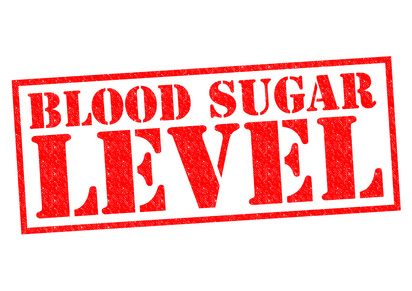 The mineral chromium is found in various forms. Hexavalent chromium is used for industrial purposes such as chrome plating, tanning of hides, dyes, wood protection etc. This form of chromium is toxic and may cause contact dermatitis and certain cancer forms. Trivalent chromium, on the other hand, is found in biological matter such as plants and animals and is an essential nutrient. As the body's need for chromium is rather small, this nutrient is characterised as a trace element. The body stores around 4-6 mg of chromium.
The mineral chromium is found in various forms. Hexavalent chromium is used for industrial purposes such as chrome plating, tanning of hides, dyes, wood protection etc. This form of chromium is toxic and may cause contact dermatitis and certain cancer forms. Trivalent chromium, on the other hand, is found in biological matter such as plants and animals and is an essential nutrient. As the body's need for chromium is rather small, this nutrient is characterised as a trace element. The body stores around 4-6 mg of chromium. According to a study from Columbia University’s College of Dental Medicine and Vagelos College of Physicians and Surgeons, there are certain compounds in fish oil that can prevent pregnancy complications that follow in the wake of a regular bacterial infection. These complications include miscarriage, preterm delivery, and infant death. There are an estimated 15 million premature deliveries per year on a global scale, and each year around one million babies die as a result of this. Preterm infants also have an increased risk of vision impairment, retarded physical development, and learning disabilities. The researchers therefore suggest new strategies for recommending nutritional supplements and fish oil supplements during pregnancy.
According to a study from Columbia University’s College of Dental Medicine and Vagelos College of Physicians and Surgeons, there are certain compounds in fish oil that can prevent pregnancy complications that follow in the wake of a regular bacterial infection. These complications include miscarriage, preterm delivery, and infant death. There are an estimated 15 million premature deliveries per year on a global scale, and each year around one million babies die as a result of this. Preterm infants also have an increased risk of vision impairment, retarded physical development, and learning disabilities. The researchers therefore suggest new strategies for recommending nutritional supplements and fish oil supplements during pregnancy. A new study links thyroid disorders to female infertility. At the same time, it is known that selenium, an essential micronutrient, is required for normal functioning of the thyroid gland. Modern diets are depleted of selenium and the question is: Could selenium supplements be a good place to begin for infertile couples before embarking on expensive IVF therapy?
A new study links thyroid disorders to female infertility. At the same time, it is known that selenium, an essential micronutrient, is required for normal functioning of the thyroid gland. Modern diets are depleted of selenium and the question is: Could selenium supplements be a good place to begin for infertile couples before embarking on expensive IVF therapy? The need for the trace element
The need for the trace element  If you are pregnant it may be wise to eat salmon. According to a new study it lowers your child's risk of developing asthma, which is a rather common ailment. But what is it in salmon that prevents asthma, and what about those who dislike the taste of fish?
If you are pregnant it may be wise to eat salmon. According to a new study it lowers your child's risk of developing asthma, which is a rather common ailment. But what is it in salmon that prevents asthma, and what about those who dislike the taste of fish?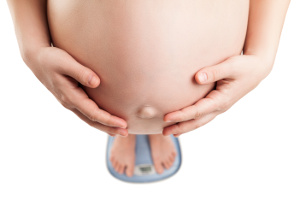 Women who are overweight before becoming pregnant have an increased risk of abnormal fetal growth and low birth weight. However, it appears that fish oil supplementation can lower the risk of these complications, according to a new pilot study that is published in the science journal, Nutrients. The scientists behind the study explain how omega-3 fatty acids in fish oil support a healthy pregnancy and help control inflammation, insulin sensitivity, and lipid metabolism, all of which tend to be off balance in overweight pregnant women.
Women who are overweight before becoming pregnant have an increased risk of abnormal fetal growth and low birth weight. However, it appears that fish oil supplementation can lower the risk of these complications, according to a new pilot study that is published in the science journal, Nutrients. The scientists behind the study explain how omega-3 fatty acids in fish oil support a healthy pregnancy and help control inflammation, insulin sensitivity, and lipid metabolism, all of which tend to be off balance in overweight pregnant women. Premature delivery increases the baby’s risk of being born with developmental disturbances or dying within its first months of life. It is commonly known that
Premature delivery increases the baby’s risk of being born with developmental disturbances or dying within its first months of life. It is commonly known that  Asthma is the leading disease among children and adolescents in the Western world, and the rate has been going up for the past 20 years. A new Danish study that is published in the New England Journal of Medicine shows that pregnant women who take supplements of
Asthma is the leading disease among children and adolescents in the Western world, and the rate has been going up for the past 20 years. A new Danish study that is published in the New England Journal of Medicine shows that pregnant women who take supplements of 
 There are several reasons why pregnant women have an increased need for folic acid. Overweight women should even pay special attention, as
There are several reasons why pregnant women have an increased need for folic acid. Overweight women should even pay special attention, as 

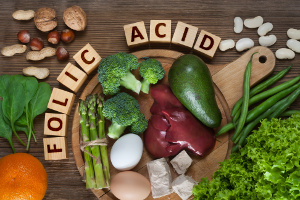
 Fish is good source of
Fish is good source of 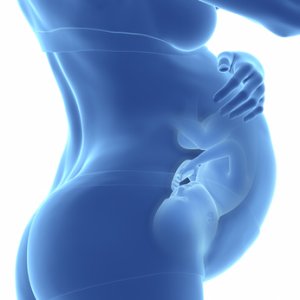 Recent studies show a possible relation betwen too little
Recent studies show a possible relation betwen too little  An increasing number of young women risk giving birth to babies with an insufficiently developed mental capacity due to
An increasing number of young women risk giving birth to babies with an insufficiently developed mental capacity due to Many women gain weight during pregnancy and have great difficulty with losing the excess pounds afterwards. According to a new study that was presented at an international endocrinology conference, a possible explanation may be lack of
Many women gain weight during pregnancy and have great difficulty with losing the excess pounds afterwards. According to a new study that was presented at an international endocrinology conference, a possible explanation may be lack of 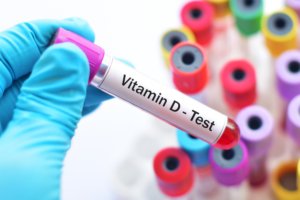 Expecting mothers should pay careful attention to getting enough vitamin D all year round, especially because vitamin D deficiencies are so commonplace, to begin with. Lack of vitamin D at birth and the first years of life is associated with an increased risk of infant hypertension, and the problem can even continue to adulthood. This was shown in a study that is published in the science journal Hypertension. The researchers advise pregnant women to have their vitamin D levels measured, and they even recommend vitamin D supplements for pregnant women and children as a way of preventing elevated blood pressure later in life.
Expecting mothers should pay careful attention to getting enough vitamin D all year round, especially because vitamin D deficiencies are so commonplace, to begin with. Lack of vitamin D at birth and the first years of life is associated with an increased risk of infant hypertension, and the problem can even continue to adulthood. This was shown in a study that is published in the science journal Hypertension. The researchers advise pregnant women to have their vitamin D levels measured, and they even recommend vitamin D supplements for pregnant women and children as a way of preventing elevated blood pressure later in life.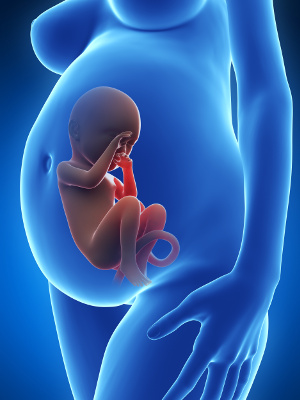 The number of small children affected by asthma and allergy is a growing worldwide problem.
The number of small children affected by asthma and allergy is a growing worldwide problem. 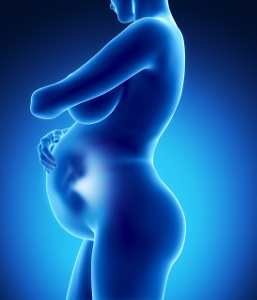 The number of children and adolescents with ADHD has skyrocketed in the past decade, and the human and socioeconomic costs are enormous. A major cause may be the widespread problems with vitamin D deficiency, according to a study from Turku University in Finland. It does not make things any easier that sun awareness campaigns fail to give people an alternative way of getting enough
The number of children and adolescents with ADHD has skyrocketed in the past decade, and the human and socioeconomic costs are enormous. A major cause may be the widespread problems with vitamin D deficiency, according to a study from Turku University in Finland. It does not make things any easier that sun awareness campaigns fail to give people an alternative way of getting enough 
 It has long been known that
It has long been known that 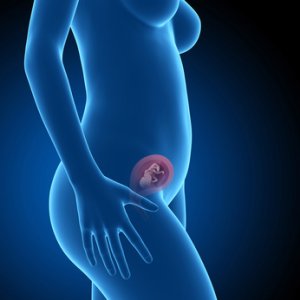 A team of scientists from Oregon State University in the United States has managed to explain why lack of
A team of scientists from Oregon State University in the United States has managed to explain why lack of  Preeclampsia is a serious pregnancy disorder with elevated blood pressure, proteinuria, and life-threatening complications in severe cases. It has already been reported that folic acid supplements help prevent preeclampsia in pregnancy. According to a new study that is published in Pregnancy Hypertension, taking even larger quantities of
Preeclampsia is a serious pregnancy disorder with elevated blood pressure, proteinuria, and life-threatening complications in severe cases. It has already been reported that folic acid supplements help prevent preeclampsia in pregnancy. According to a new study that is published in Pregnancy Hypertension, taking even larger quantities of 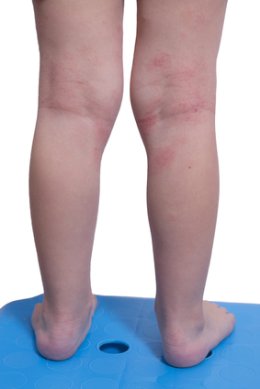 Fewer children have eczema around the age of 12 months if their mothers had higher levels of a particular B vitamin during pregnancy, according to a new study from the University of Southampton.
Fewer children have eczema around the age of 12 months if their mothers had higher levels of a particular B vitamin during pregnancy, according to a new study from the University of Southampton.
 Preeclampsia is a precursor of eclampsia, a condition characterized by spasms and seizures that can be life-threatening for the expecting mother and her unborn child. According to a new review article that is published in the science journal Cureus, injections of magnesium sulfate have been tested as part of the treatment for severe preeclampsia and related spasms. This therapy form has also been introduced in Denmark. It is important during pregnancy to get enough
Preeclampsia is a precursor of eclampsia, a condition characterized by spasms and seizures that can be life-threatening for the expecting mother and her unborn child. According to a new review article that is published in the science journal Cureus, injections of magnesium sulfate have been tested as part of the treatment for severe preeclampsia and related spasms. This therapy form has also been introduced in Denmark. It is important during pregnancy to get enough 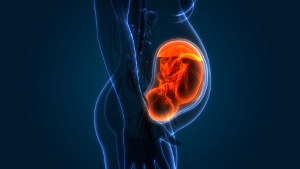 During pregnancy, the unborn child is totally dependent on the mother’s vitamin D status.
During pregnancy, the unborn child is totally dependent on the mother’s vitamin D status.  According to a large meta-analysis, supplementing with
According to a large meta-analysis, supplementing with  Overweight or obesity during pregnancy is linked to low
Overweight or obesity during pregnancy is linked to low  Polycystic ovary syndrome (PCOS) is the leading cause of infertility and hormone disturbances in women of childbearing age. The condition is often a result of insulin resistance, an imbalance in the sugar metabolism that is typically accompanied by fatigue, abdominal obesity (apple-shaped body), overweight, and an increased risk of cardiovascular disease and type-2 diabetes. It makes perfect sense to stick with a blood sugar-stabilizing diet and to include a
Polycystic ovary syndrome (PCOS) is the leading cause of infertility and hormone disturbances in women of childbearing age. The condition is often a result of insulin resistance, an imbalance in the sugar metabolism that is typically accompanied by fatigue, abdominal obesity (apple-shaped body), overweight, and an increased risk of cardiovascular disease and type-2 diabetes. It makes perfect sense to stick with a blood sugar-stabilizing diet and to include a 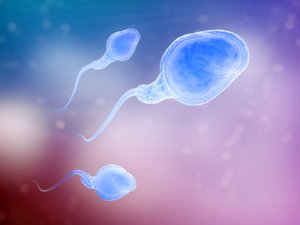 Approximately one in seven couple is childless. Although there can be many underlying causes, poor sperm quality is an increasing problem. It may be caused by a lack of certain nutrients and exposure to different environmental factors, but, fortunately, it possible to improve sperm quality and increase the chances of conception by means of relevant dietary adjustments and the use of specific supplements. New research shows that epigenetic factors (factors that affect the environment of the sperm cell) determine sperm health and are therefore crucial for activating the genes of the sperm cell so the fetus can develop.
Approximately one in seven couple is childless. Although there can be many underlying causes, poor sperm quality is an increasing problem. It may be caused by a lack of certain nutrients and exposure to different environmental factors, but, fortunately, it possible to improve sperm quality and increase the chances of conception by means of relevant dietary adjustments and the use of specific supplements. New research shows that epigenetic factors (factors that affect the environment of the sperm cell) determine sperm health and are therefore crucial for activating the genes of the sperm cell so the fetus can develop. Pregnant women are advised not to smoke, as this may harm the unborn baby. However, not all pregnant smokers are able to quit their habit. A new American study shows that
Pregnant women are advised not to smoke, as this may harm the unborn baby. However, not all pregnant smokers are able to quit their habit. A new American study shows that  Yet another example of how vitamin D affects more than strong bones. A study has shown that babies whose mothers took vitamin D during pregnancy had a stronger hand grip and greater muscle mass. This improved muscle strength may also be able to improve their health later in life.
Yet another example of how vitamin D affects more than strong bones. A study has shown that babies whose mothers took vitamin D during pregnancy had a stronger hand grip and greater muscle mass. This improved muscle strength may also be able to improve their health later in life.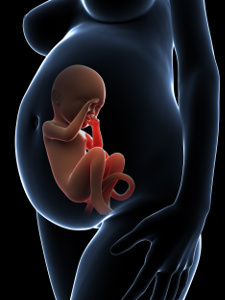 During pregnancy, the unborn child needs different nutrients for proper development of its brain and nervous system. Even if the mother eats a balanced diet, it can be difficult to get enough
During pregnancy, the unborn child needs different nutrients for proper development of its brain and nervous system. Even if the mother eats a balanced diet, it can be difficult to get enough  Oily fish is a great source of the essential omega-3 fatty acids, EPA and DHA, which are important for the development of the brain and nervous system of the unborn child. Pregnant women with low levels of these two omega-3 fatty acids have a statistically significant increased risk of preterm delivery compared with pregnant women who have high levels of EPA and DHA in their blood. This was shown in a study from SSI in Copenhagen, carried out in collaboration with Harvard T.H. Chan School of Public Health in Boston, the United States. The problem is that many women are afraid to eat oily fish during their pregnancy because of the risk of mercury poisoning. So which fish are the safest for consumption – and what about fish oil supplements?
Oily fish is a great source of the essential omega-3 fatty acids, EPA and DHA, which are important for the development of the brain and nervous system of the unborn child. Pregnant women with low levels of these two omega-3 fatty acids have a statistically significant increased risk of preterm delivery compared with pregnant women who have high levels of EPA and DHA in their blood. This was shown in a study from SSI in Copenhagen, carried out in collaboration with Harvard T.H. Chan School of Public Health in Boston, the United States. The problem is that many women are afraid to eat oily fish during their pregnancy because of the risk of mercury poisoning. So which fish are the safest for consumption – and what about fish oil supplements? It is important for the health of the unborn child that the expecting mother keeps her
It is important for the health of the unborn child that the expecting mother keeps her 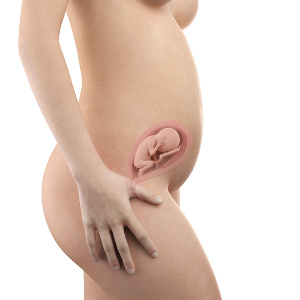



 Hormonal imbalances have broad implications and increase the risk of chronic fatigue, overweight, impaired fertility, dry mucosa, hot flushes, slow metabolism, breast cancer, and many other problems. Lack of essential nutrients contributes to such disruptions of the sensitive hormone system. This is also the case with hormone-disrupting compounds.
Hormonal imbalances have broad implications and increase the risk of chronic fatigue, overweight, impaired fertility, dry mucosa, hot flushes, slow metabolism, breast cancer, and many other problems. Lack of essential nutrients contributes to such disruptions of the sensitive hormone system. This is also the case with hormone-disrupting compounds.
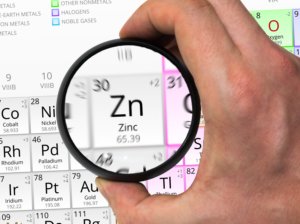 More and more people get autism. The disease is linked to, among other things, lack of
More and more people get autism. The disease is linked to, among other things, lack of 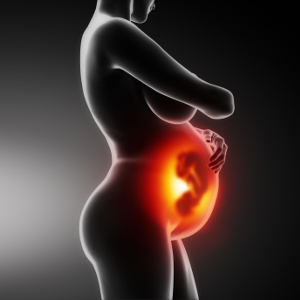
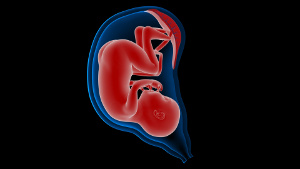
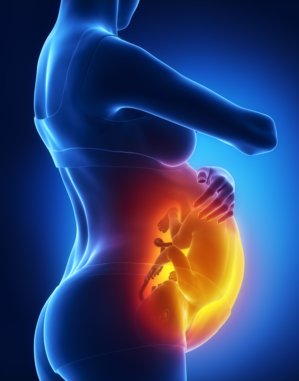 People in the Western part of the world consume far too much omega-6, primarily in the form of linoleic acid from vegetable oils and processed foods such as margarine, fries, chips, and ready meals. A new study that is published in The Journal of Physiology shows that this may be harmful during pregnancy and can increase the risk of complications and developmental disorders in the baby.
People in the Western part of the world consume far too much omega-6, primarily in the form of linoleic acid from vegetable oils and processed foods such as margarine, fries, chips, and ready meals. A new study that is published in The Journal of Physiology shows that this may be harmful during pregnancy and can increase the risk of complications and developmental disorders in the baby.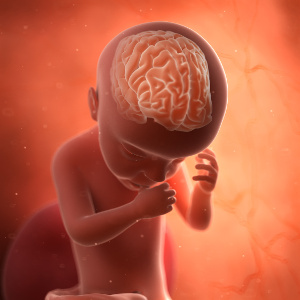 During pregnancy,
During pregnancy, 
 Atopic dermatitis (eczema) is a widespread problem and a huge burden to both the child and its parents. According to a new study that is published in British Journal of Dermatology, high-dosed
Atopic dermatitis (eczema) is a widespread problem and a huge burden to both the child and its parents. According to a new study that is published in British Journal of Dermatology, high-dosed 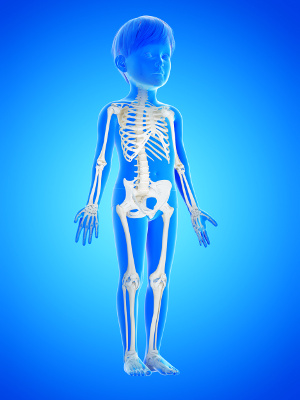
 There is an increasing amount of science that links lack of
There is an increasing amount of science that links lack of  Zinc is a trace element that is found in all cells and body fluids. Zinc is essential for normal functioning of around 200 different enzymes that control growth, metabolism, the nervous system, the immune function, and a variety of other functions. Most of our zinc is found in muscle tissue and bone tissue and there is a rather large zinc concentration in the prostate gland and in the choroidal membrane of the eye. Around 11% of our zinc is found in the skin and liver. An adult contains 2-4 grams of zinc. We are only able to absorb 10-30% of the zinc that we get from our diet, and there are several factors that can either increase or decrease zinc absorption.
Zinc is a trace element that is found in all cells and body fluids. Zinc is essential for normal functioning of around 200 different enzymes that control growth, metabolism, the nervous system, the immune function, and a variety of other functions. Most of our zinc is found in muscle tissue and bone tissue and there is a rather large zinc concentration in the prostate gland and in the choroidal membrane of the eye. Around 11% of our zinc is found in the skin and liver. An adult contains 2-4 grams of zinc. We are only able to absorb 10-30% of the zinc that we get from our diet, and there are several factors that can either increase or decrease zinc absorption.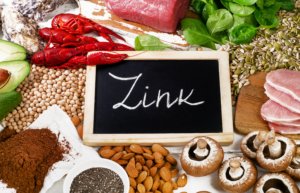 An estimated two billion people worldwide lack
An estimated two billion people worldwide lack 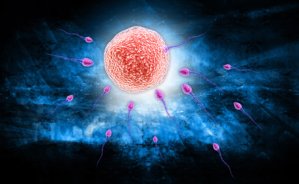 Once the sperm cell has penetrated the egg cell, sparks fly from zinc atoms in a fascinating fireworks display. This new discovery may help fertility doctors select the most best eggs for in-vitro fertilization (IVF). The discovery also has relevance for all others who wish a successful pregnancy. It all boils down to having adequate zinc stores in the body.
Once the sperm cell has penetrated the egg cell, sparks fly from zinc atoms in a fascinating fireworks display. This new discovery may help fertility doctors select the most best eggs for in-vitro fertilization (IVF). The discovery also has relevance for all others who wish a successful pregnancy. It all boils down to having adequate zinc stores in the body. "After about one week of taking the Q10 supplement I could feel a huge difference," says 23-year old Alan Piccini, who has been suffering from extreme fatigue and muscle aches ever since he was a child.
"After about one week of taking the Q10 supplement I could feel a huge difference," says 23-year old Alan Piccini, who has been suffering from extreme fatigue and muscle aches ever since he was a child. “Taking capsules with co-enzyme Q10 has freed me of the severe side effects of my cholesterol lowering medicine,” Mrs Franken explains.
“Taking capsules with co-enzyme Q10 has freed me of the severe side effects of my cholesterol lowering medicine,” Mrs Franken explains.